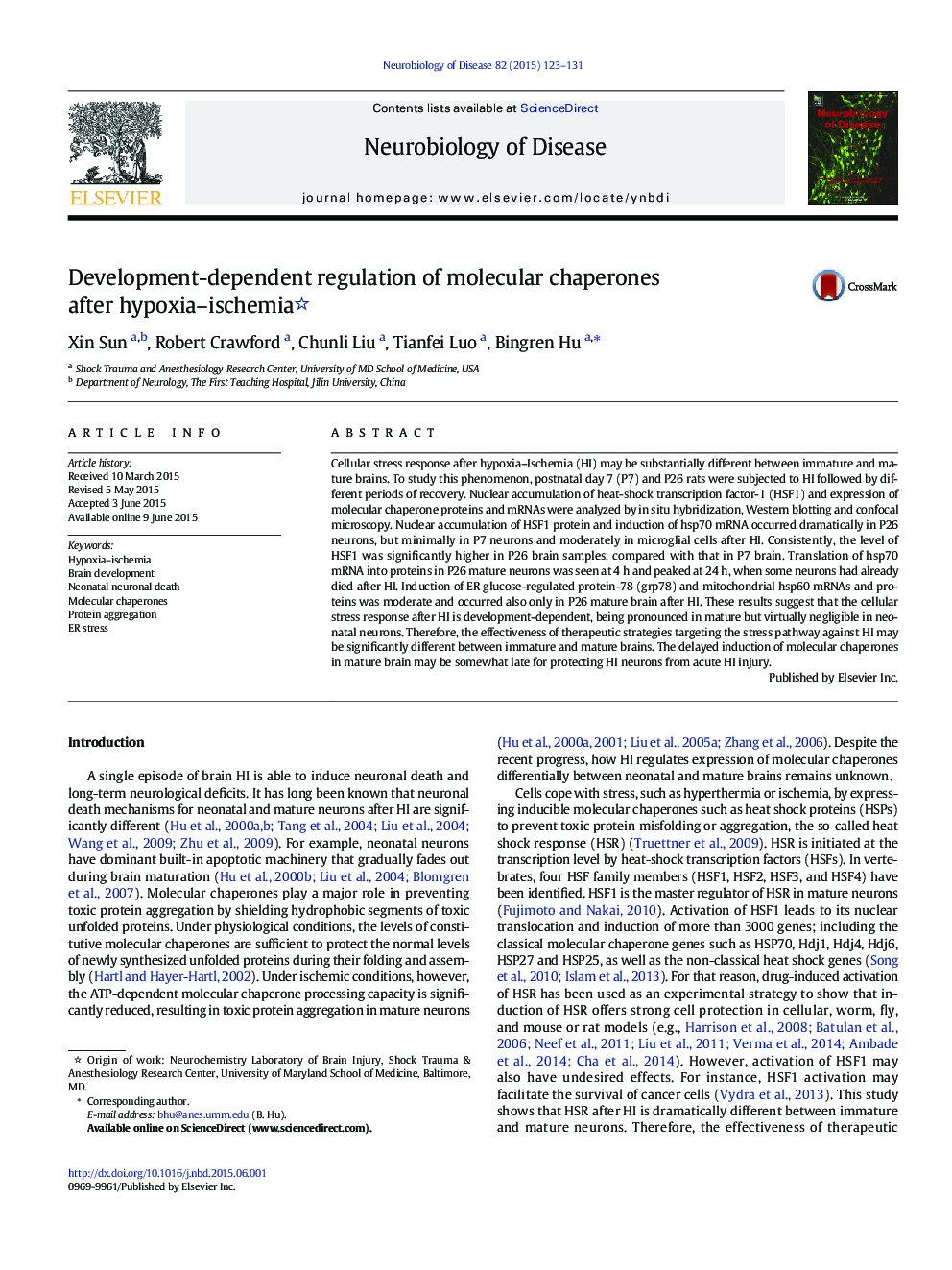| کد مقاله | کد نشریه | سال انتشار | مقاله انگلیسی | نسخه تمام متن |
|---|---|---|---|---|
| 6021600 | 1580641 | 2015 | 9 صفحه PDF | دانلود رایگان |
عنوان انگلیسی مقاله ISI
Development-dependent regulation of molecular chaperones after hypoxia-ischemia
دانلود مقاله + سفارش ترجمه
دانلود مقاله ISI انگلیسی
رایگان برای ایرانیان
کلمات کلیدی
موضوعات مرتبط
علوم زیستی و بیوفناوری
علم عصب شناسی
عصب شناسی
پیش نمایش صفحه اول مقاله

چکیده انگلیسی
Cellular stress response after hypoxia-Ischemia (HI) may be substantially different between immature and mature brains. To study this phenomenon, postnatal day 7 (P7) and P26 rats were subjected to HI followed by different periods of recovery. Nuclear accumulation of heat-shock transcription factor-1 (HSF1) and expression of molecular chaperone proteins and mRNAs were analyzed by in situ hybridization, Western blotting and confocal microscopy. Nuclear accumulation of HSF1 protein and induction of hsp70 mRNA occurred dramatically in P26 neurons, but minimally in P7 neurons and moderately in microglial cells after HI. Consistently, the level of HSF1 was significantly higher in P26 brain samples, compared with that in P7 brain. Translation of hsp70 mRNA into proteins in P26 mature neurons was seen at 4Â h and peaked at 24Â h, when some neurons had already died after HI. Induction of ER glucose-regulated protein-78 (grp78) and mitochondrial hsp60 mRNAs and proteins was moderate and occurred also only in P26 mature brain after HI. These results suggest that the cellular stress response after HI is development-dependent, being pronounced in mature but virtually negligible in neonatal neurons. Therefore, the effectiveness of therapeutic strategies targeting the stress pathway against HI may be significantly different between immature and mature brains. The delayed induction of molecular chaperones in mature brain may be somewhat late for protecting HI neurons from acute HI injury.
ناشر
Database: Elsevier - ScienceDirect (ساینس دایرکت)
Journal: Neurobiology of Disease - Volume 82, October 2015, Pages 123-131
Journal: Neurobiology of Disease - Volume 82, October 2015, Pages 123-131
نویسندگان
Xin Sun, Robert Crawford, Chunli Liu, Tianfei Luo, Bingren Hu,